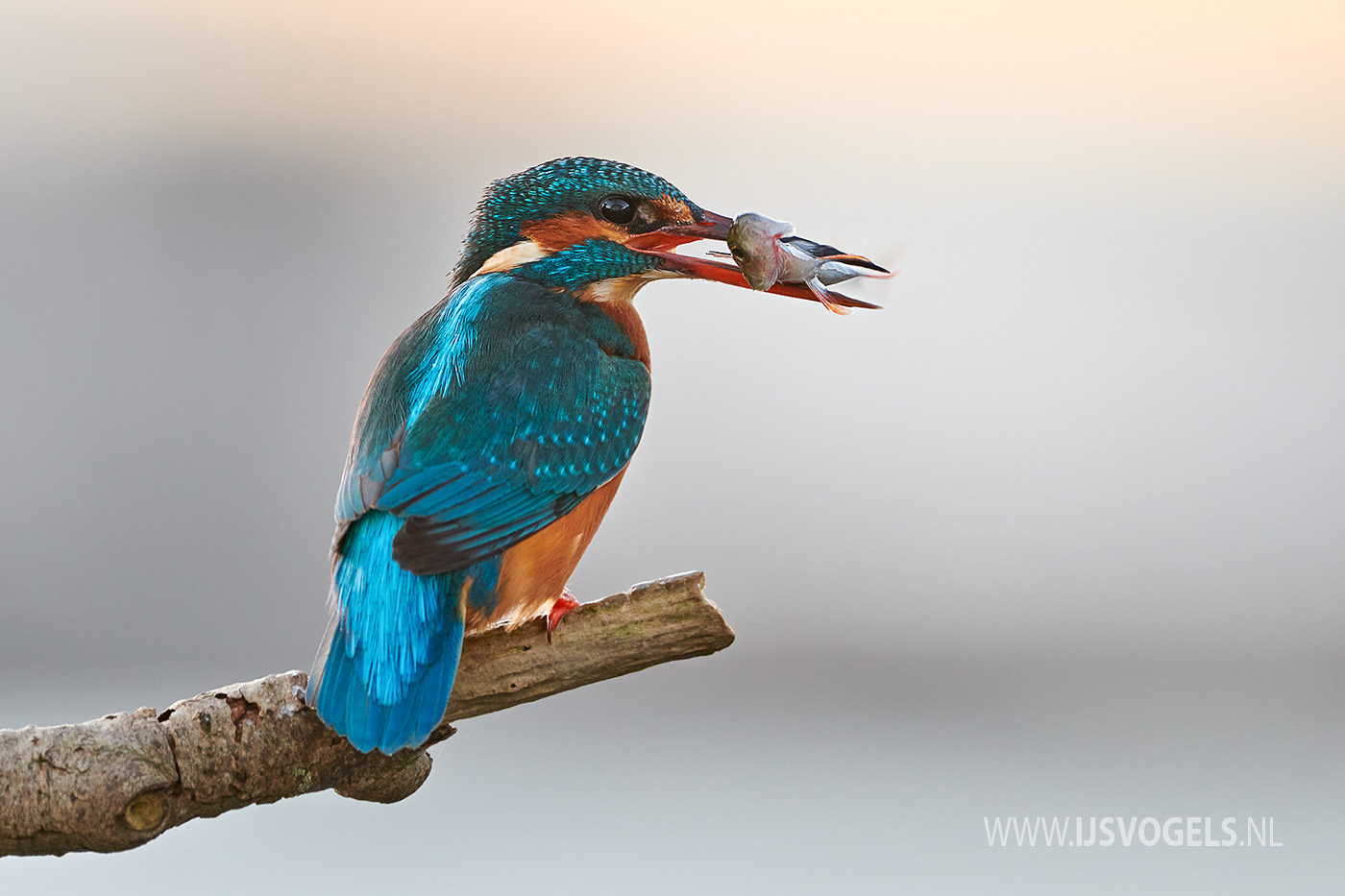According to most data in various literature, the weight of an adult kingfisher is between 35 and 45 grams. However, this appears to be on the low side, on average a kingfisher weighs up to 10 grams more. In mid-2018 I was able to realize a dream and bought a house on a large lake. After some necessary work, I soon started building a pond. Within days the first kingfisher came to visit, a female, she quickly became a daily visitor. To be able to monitor the visit of the possibly different kingfishers, I decided to realize an old plan, an electronic weighing element with which the weight of the bird on a branch can be weighed. A digital SLR camera is also released, so that clear pictures of the kingfishers can be linked to the weight. After solving various problems in hardware and software, I finally have a scale that can weigh to the hundredth of a gram. The beauty of the system is that the kingfisher only has to sit on the branch, it does not notice the weighing, so there is no disturbance whatsoever.
Around Christmas 2018 I was able to collect a lot of information, the female invariably came to eat a fish from her sleeping place in the morning twilight, even in the evening twilight she came for a last fish for the night. After analyzing this data, very interesting things came up. The table below shows her weight during the day:
| – average weight in the morning: | 43,23 gram |
| – average weight during the day: | 47,15 gram |
| – average weight before the night: | 51,32 gram |
| – average weight per fish: | 3,89 gram |
From the data I could also conclude that the average weight that was ‘consumed’ per hour (energy burned, faeces, pellets) was 3.31 grams. This was in a quiet period, there were not many flight movements, no courtship or territorial disputes. This means that on average a kingfisher has to eat a fish every hour every hour, which increases when there are more flight movements, it will decrease when the temperature outside rises.

After January 5 I did not see this female from one day to the next, for a week there was no kingfisher at all. Fortunately, her place was taken by a male, who was seen again for the first time on January 13, previously he was a sporadic visitor. Since that day he comes to visit the pond almost daily, which is less consistent in terms of times, usually during the afternoon. The measurements were therefore not as revealing as those of the female, but some nice results came out nonetheless.
| – average weight in the morning | 40,41 gram |
| – average weight during the day | 46,55 gram |
| – average weight before the night | 49,88 gram |
| – highest weight during the day (14:12 uur): | 54,35 gram |
| – lowest weight during the day (11:13 uur): | 38,20 gram |
In the first nights that the male was present, I could measure him in the evening and morning, especially on a cold night he lost a lot of body weight:
| Temperature at night: -6 | from 51,46 to 39,88 gram (a loss of 11,58 gram) |
| Temperature at night: -1 | from 53,10 to 38,92 gram (a loss of 14,18 gram) |

Usually during a visit 2 fish were eaten fairly quickly after each other, one time I observed that three fish were eaten within 10 minutes, with a total weight of 10.4 grams, his weight went from 40.70 to 51.10 gram (2:06 pm). If we were to see this in relation to an adult male of 80 kg, then he would have to eat a meal of 20 kg in 10 minutes.
This shows that the kingfisher has a very fast metabolism and is very vulnerable, especially in winter. For example, if a fish cannot be caught quickly in the morning and the bird has to fly long distances to get food, its condition will deteriorate quickly.